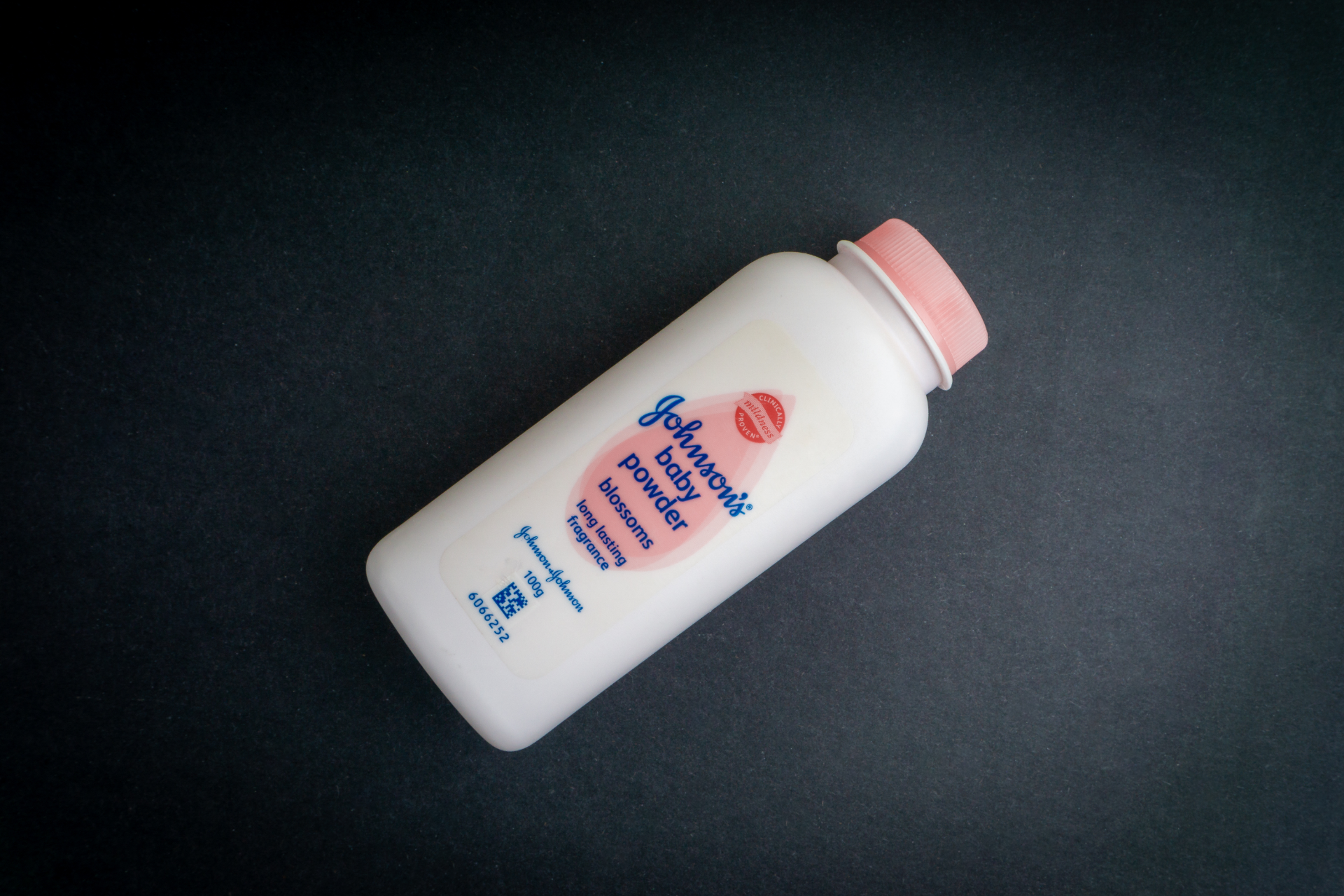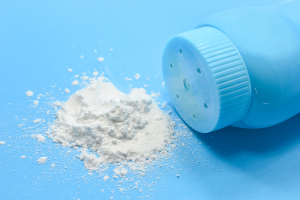Top Class Actions’s website and social media posts use affiliate links. If you make a purchase using such links, we may receive a commission, but it will not result in any additional charges to you. Please review our Affiliate Link Disclosure for more information.
Johnson & Johnson will reportedly continue to sell its baby powder in the United Kingdom despite halting sales of the product in North America, reports the BBC.
According to the BBC, the company has faced over 20,000 complaints by consumers over the years that the talc used in Johnson & Johnson’s controversial Baby Powder causes cancer.
Talc, which is mined, is often found naturally contaminated with asbestos, a substance closely linked to cancer by the American Cancer Society.
The company announced in an official statement on May 19, 2020 that it would end all Johnson & Johnson’s Baby Powder sales in the United States and Canada, specifically after the existing supply on shelves ran out, according to the New York Times. Neither the article nor Johnson & Johnson’s official statement expands discontinued plans to the United Kingdom.
Johnson & Johnson claimed in their official statement that the decision to temporarily stop the shipment of products was made as “part of a portfolio assessment related to COVID-19,” wanting to instead “prioritize high-demand products and to allow for appropriate social distancing in manufacturing and distribution facilities during this unprecedented pandemic.”
However, following that move, Johnson & Johnson decided to permanently discontinue selling the product in North America, citing falling demand: “Demand for talc-based Johnson’s Baby Powder in North America has been declining due in large part to changes in consumer habits and fueled by misinformation around the safety of the product and a constant barrage of litigation advertising.”
Though Johnson & Johnson has always maintained that its baby powder is safe, there is a long record of asbestos-related exposure legal troubles in which consumers claim they were misled into believing talc was nontoxic and used the talc-based product for many years.
Though the results of these lawsuits against the company have been mixed, several large verdicts have been awarded.
In a 2018 case, plaintiffs were awarded $4.7 billion in a circuit court in Missouri. Krystal Kim, a Philadelphia woman and two-time ovarian cancer survivor, blames her illness on her lifelong use of the talc-based Johnson & Johnson’s Baby Powder. Kim was part of a group of 22 women who won a lawsuit against the company.
In June 2019, a California jury awarded nearly $4.8 million from Johnson & Johnson to a former fifth-grade teacher who said her mesothelioma was caused by asbestos exposure in Johnson & Johnson’s Baby Powder.
As of late-March, 19,400 lawsuits related to talc powder had been filed against Johnson & Johnson, notes the New York Times, and according to The Mesothelioma Center, “to date, more than $5 billion has been awarded to plaintiffs involving Johnson & Johnson Baby Powder and Shower to Shower products.”
The large health concern regarding Johnson & Johnson’s talc-based baby powder is whether or not it contains traces of asbestos. The National Cancer Institute asserts that asbestos is a known human carcinogen closely linked to mesothelioma, lung cancer and even ovarian cancer.
Some experts believe the asbestos may enter the body by inhalation or when applied in the genital region. Women who used talc-based powders like Johnson & Johnson’s baby powder regularly on their genital areas allegedly had a 33 percent increased risk of developing ovarian cancer, according to a 2016 study published in the medical journal Epidemiology.
Johnson & Johnson has consistently claimed the controversial product is safe. However, a December 2018 Reuters investigation revealed that internal Johnson & Johnson documents showed that from about 1971 to the early-2000s, “the company’s raw talc and finished powders sometimes tested positive for small amounts of asbestos,” according to Business Insider.
In July 2019, the U.S. Department of Justice and Securities and Exchange Commission launched a formal investigation into Johnson & Johnson over safety concerns regarding the purity of its products, the results of which are still pending.
More recently, the FDA announced in October 2019 that it had found small amounts of asbestos in samples from a single bottle of Johnson’s Baby Powder. The FDA’s announcement led Johnson & Johnson to voluntarily recall a single lot of the baby powder. The FDA advised consumers to discontinue use of the product immediately.
Despite all of this, Johnson & Johnson maintains its stance behind the product, stating that “decades of scientific studies by medical experts” echo the safety of their talc-based Baby Powder.
Still, thousands of people have claimed the company did not warn them of potential risks the company was allegedly aware of internally. Most of those lodging the complaints have been women with ovarian cancer, the New York Times reported.
An alternative, cornstarch-based Johnson’s Baby Powder will continue to be available in North America. Both varieties will be available in other international markets where consumer demand is higher.
The cornstarch-based Johnson’s Baby Powder was developed in 1980 after consumer advocates raised concerns about the possible traces of asbestos in the talc.
Do you believe your mesothelioma or cancer may have been caused by the use of talcum powder? Let us know in the comments.
More information on ongoing class action lawsuits related to talcum powder’s alleged link to cancers is available on the Top Class Actions Investigations page.
Read More Lawsuit & Settlement News:
Group Action Lawsuit Filed By Mercedes-Benz Owners In New Emissions Scandal
ATTORNEY ADVERTISING
Top Class Actions is a Proud Member of the American Bar Association
LEGAL INFORMATION IS NOT LEGAL ADVICE
Top Class Actions Legal Statement
©2008 – 2024 Top Class Actions® LLC
Various Trademarks held by their respective owners
This website is not intended for viewing or usage by European Union citizens.







